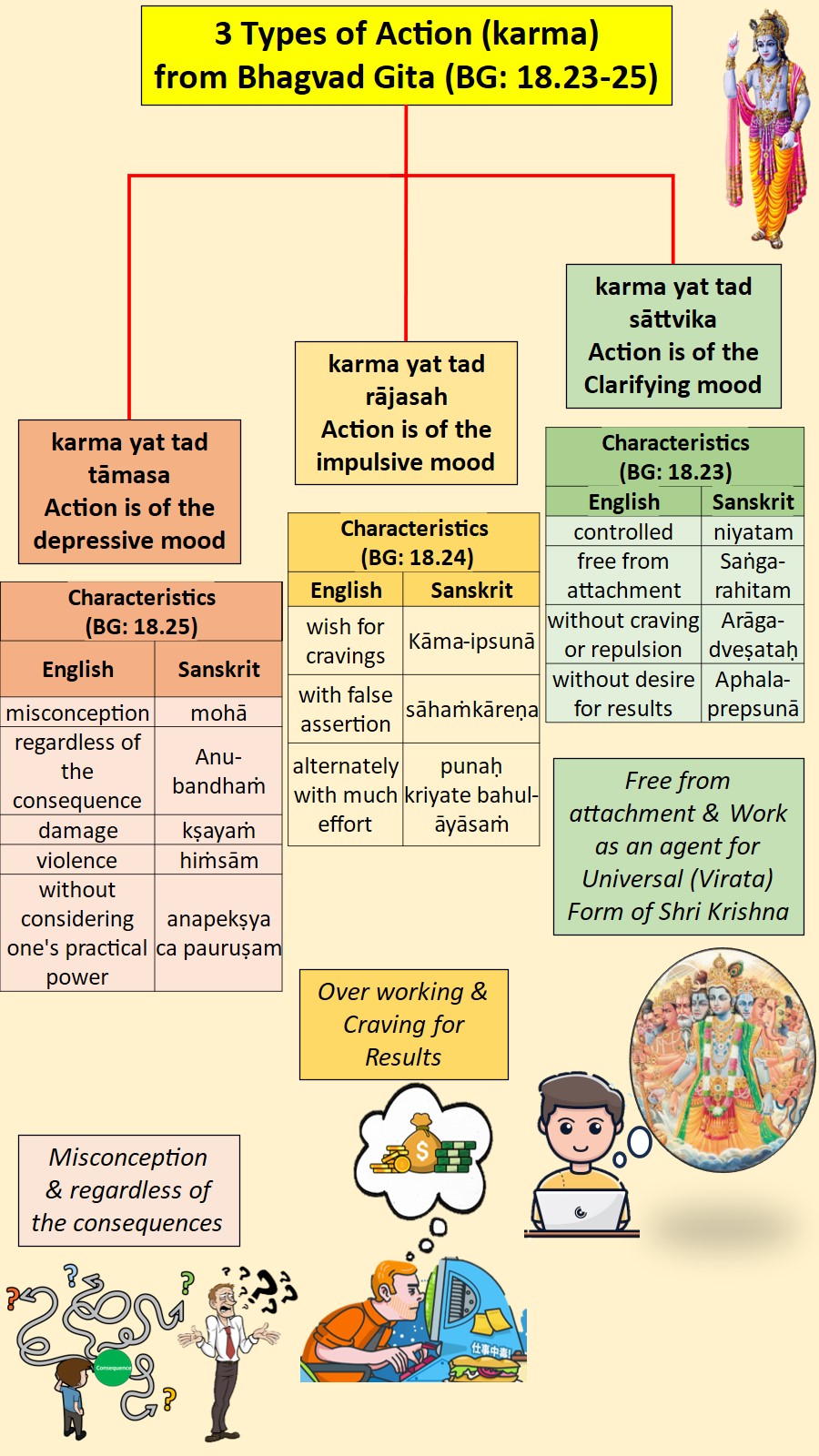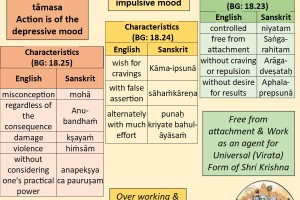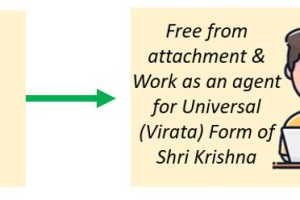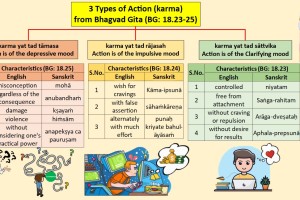Bhagavad Gita Series - 8 : 3 Types of Action (karma) [BG: 18.23-25]
Here is the link to Bhagavad Gita Series : Master Database
On June 7, 2024
Houston, Texas
At night 11:30 pm CST, Shri Krishna inspired this information into the psyche while doing the breath infusion practice, the energy forced me to make the correction immediately in middle of the night.
In the evening around 7:20 pm CST, this was the orginal poster that I made from Yogi Madhvacharya's Bhagavad Gita book.
I struggled to make a picture as many concepts were abstract, so I came up with the best possible representation to my understanding.
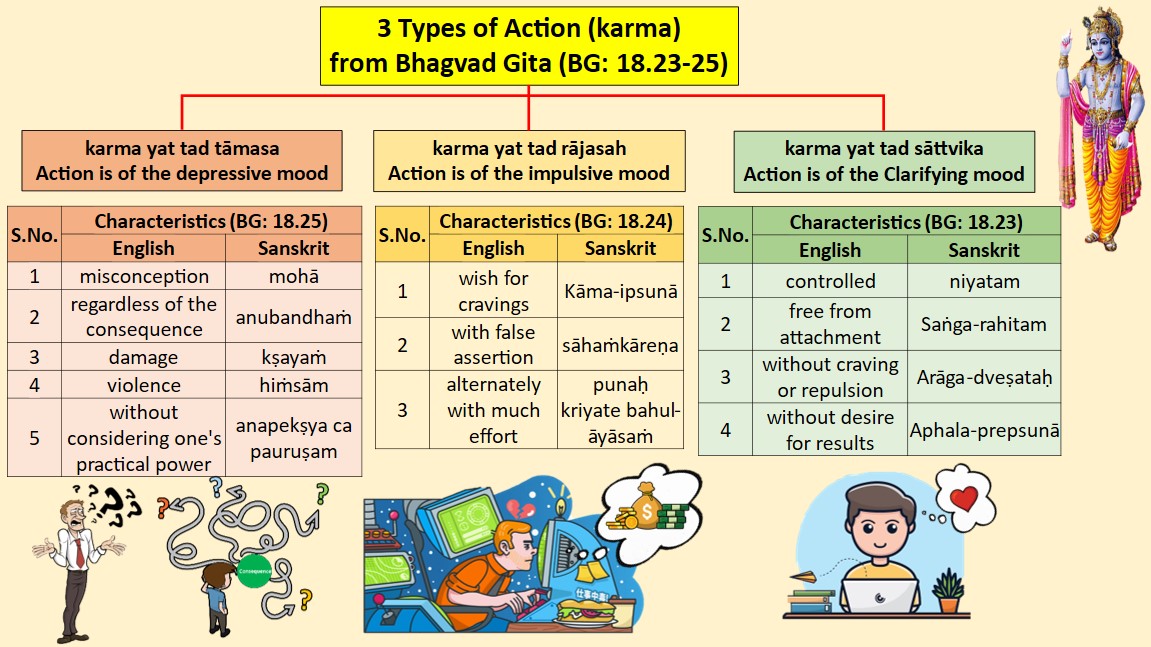
Correction:
Shri Krishna corrected me on the diagram and let a compressed message saying "You do the work not for the love of it, but for me".
Remark:
Shri Krishna inspired that "The common adage that "Love your work and do it" is essentially a form of attachment to the work, even that attachment should not be developed for the work"
Then the natural questions comes for what or for whom should we do the work?
My psyche involuntarily asked in a nano second "One should not do the work for the sake of benefits and now one is also barred from doing the work for the sake of work itself! For whom should I do it then ?"
Shri Krishna again left message saying "For Virata Form". (Vishwarupa/ Universal form of Krishna)
I tried to put a 2 hand Krishna form in the bubble of below image, Shri Krishna insisted sternly "No, it is Virata form".
He flashed the line written in Bhagvad Gita Commentary by Yogi Madhvacharya, saying one has to do the work as an agent of Virata form of Krishna.
Shri Krishna corrected every line and word of it in the middle of night around 11:30 pm to get it right. Shri Krishna wanted this to be conveyed correctly as HE felt this was a very important aspect that should not be communicated wrongly.
Now, I realise the mistake I made, it may look subtle or harmless but it has catastrophic consequences at several levels and endless rebirths just for the attachment for the work.
Lord Shri Krishna graciously corrected every line and word of it. I missed one word "the agent" as there was less space in the poster, HE insisted to add it too to the image and HE (his energy) stayed in the psyche and made sure I added it.

Corrected Version:
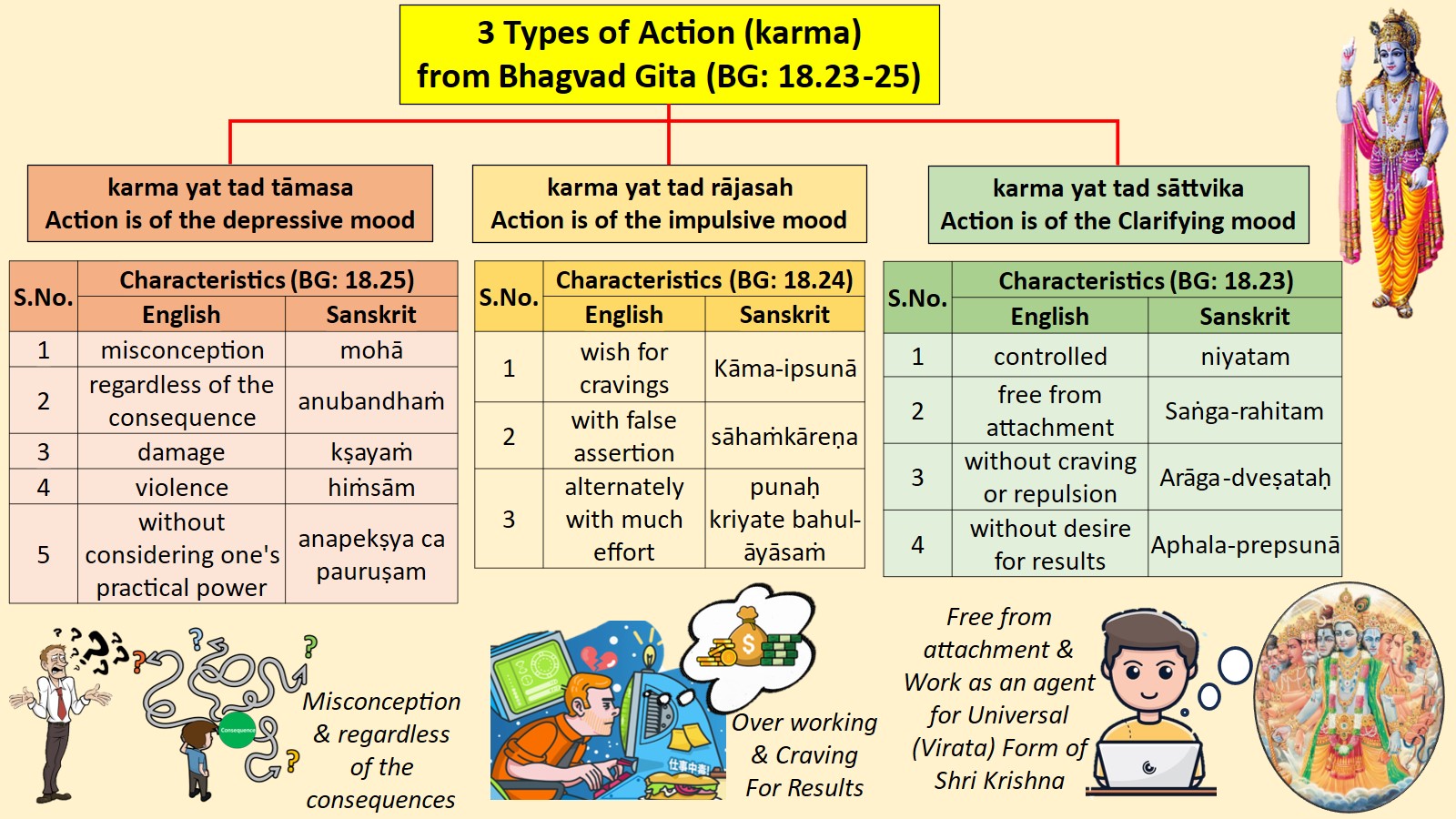
- anubandhaṁ kṣayaṁ hiṁsām
- anapekṣya ca pauruṣam
- mohādārabhyate karma
- yattattāmasamucyate (18.25)
anubandhaṁ — consequence; kṣayaṁ — damage; hiṁsām — violence; anapekṣya regardless of; ca — and; pauruṣam — practical power; mohāt — from misconception; ārabhyate — is undertaken; karma — action; yat — which; tat — that; tāmasam — of the depressive mode; ucyate — is said to be
That action which is undertaken from a misconception, regardless of the consequence, the damage and the violence, and without considering one's practical power, is said to be of the depressive mode. (18.25)
Commentary:
Arjuna was not in this depressive mode because he did consider the consequences, liabilities and violence involved. In fact, he described these in Chapter One. However, even if one considers the consequences, one should still submit as an agent for the Universal Form.
One should know one's usefulness in any given situation. And one should understand that every endeavor is supervised by the Central Figure in the Universal Form.
The bolded sentence was the one which Shri Krishna highlighted to me.
Pg 520 from Bhagvat Gita Explained by Yogi Madhvacharya.
